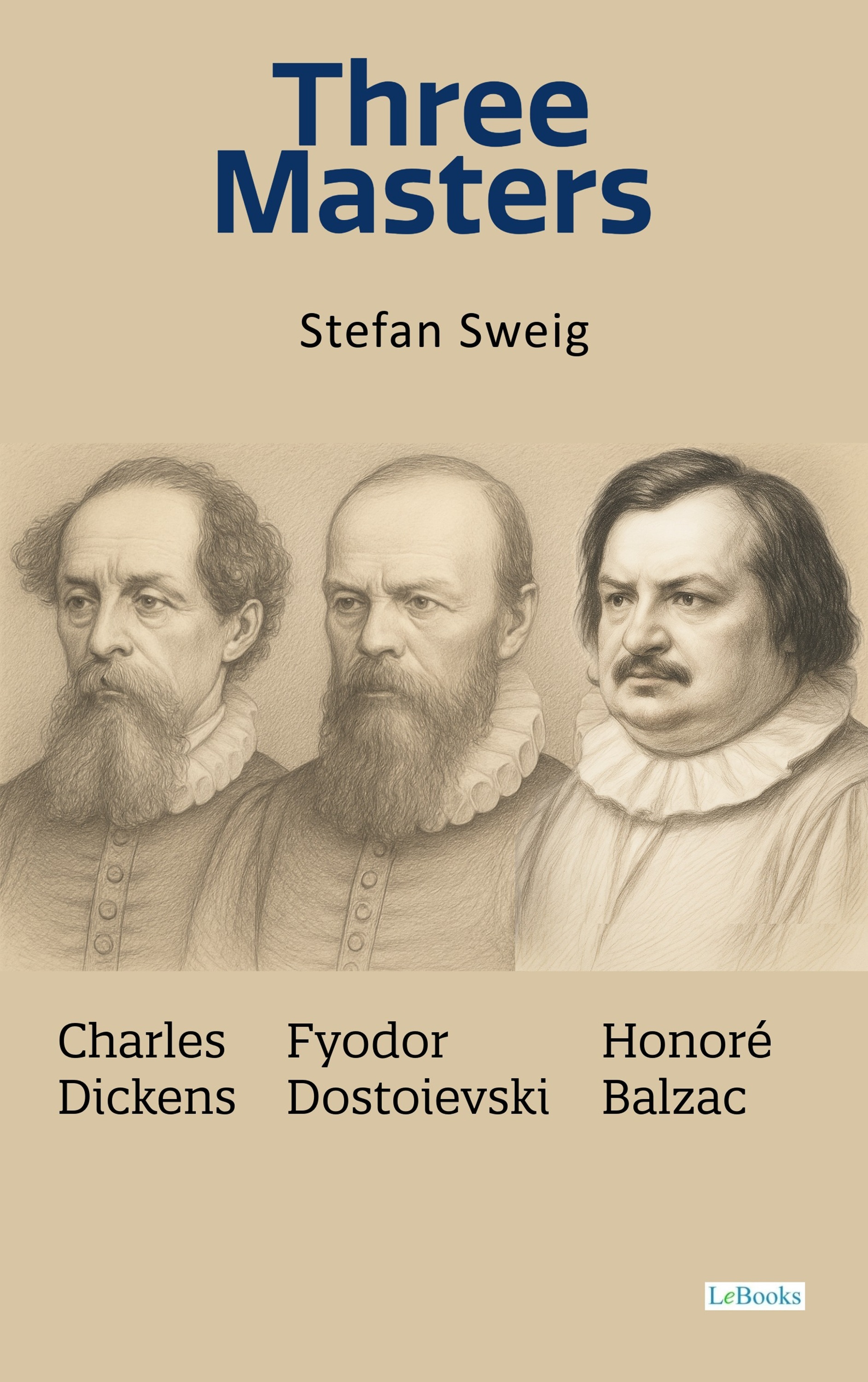
Three Masters is a penetrating literary analysis by Stefan Zweig, in which he reflects on the lives and works of three towering figures of world literature: Honoré de Balzac, Charles Dickens, and Fyodor Dostoevsky. Through this triptych, Zweig explores the psychological depth, imaginative power, and human insight each writer brought to their portrayals of society, offering a profound meditation on the nature of genius and artistic creation.
In his portraits, Zweig emphasizes Balzac's encyclopedic vision of society, Dickens's moral fervor and empathy for the underprivileged, and Dostoevsky's exploration of the human soul's darkest and most ecstatic dimensions. Rather than focusing solely on biographical facts, Zweig delves into the inner tensions and creative struggles that shaped their literary identities, presenting them as artists driven by an obsessive need to understand and represent the complexities of existence.
Since its publication, Three Masters has been praised for its eloquent prose, psychological insight, and passionate engagement with literature. It stands not only as a tribute to the authors it examines but also as a reflection of Zweig's own humanist worldview—one that values empathy, depth, and the enduring relevance of great art.
By intertwining biography with literary criticism, Three Masters invites readers to consider how art emerges from personal experience, cultural forces, and inner conflict. It remains a compelling guide to the timeless influence of literature and the creative spirits who shape our understanding of the human condition.